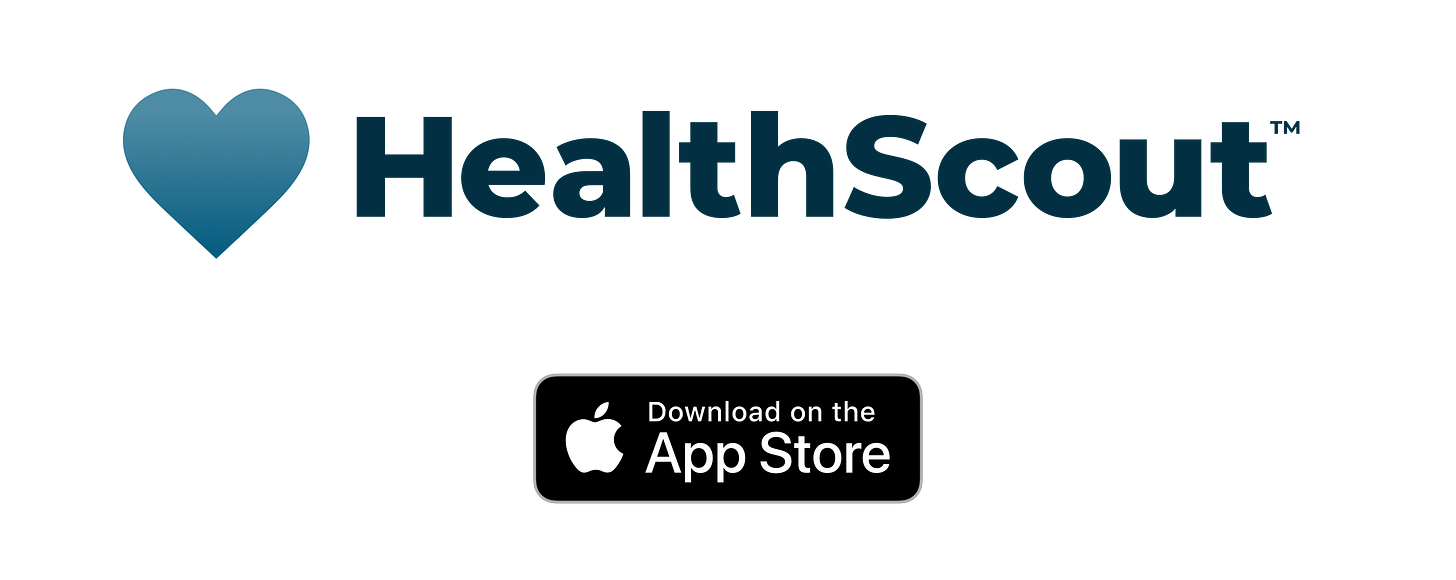The Decision That Took Weeks to Research
How HealthScout Solved a Treatment Dilemma in Seconds
Maya* sat in the endocrinologist's office, freshly diagnosed with osteoporosis and facing a choice that would affect her health for years to come.
"You have two main options," the specialist explained matter-of-factly. "Fosamax, which is a weekly pill, or Reclast, an annual IV infusion. Both are effective treatments."
Then came the part that left Maya feeling adrift: "I'll let you decide which one you prefer."
No recommendation. No guidance about which might work better for her specific situation. Just two options and a decision that felt too important to make without more information.
The Friendship Network Investigation
What do you do when your doctor won't make a recommendation? Maya did what many of us do — she crowdsourced the decision.
"I wrote to my network of girlfriends, accumulating several dozen stories of what others had experienced," Maya told me. For weeks, she collected testimonials, experiences, and opinions from friends who had faced similar choices.
The pattern that emerged was telling. Several friends mentioned they had tried Fosamax but experienced stomach problems that forced them to switch treatments. These stories resonated with Maya — she remembered having gastrointestinal issues with other oral medications in the past, though they seemed minor and distant.
Based on these friendship consultations, Maya concluded that Reclast would be the safer choice. She could avoid the potential stomach issues that had plagued her friends and that she vaguely remembered experiencing herself.
It was solid reasoning, but it had taken weeks of research and dozens of conversations to reach that conclusion.
The Instant Answer
Then Maya got access to HealthScout during our beta testing phase.
Curious to validate her weeks of research, she asked a simple question: "Should I take Fosamax or Reclast to treat my osteoporosis?"
HealthScout's response was immediate and definitive: Given her documented history of GI problems with oral medications, Reclast would indeed be the better choice.
"HealthScout arrived at an answer within seconds that I had taken weeks to research," Maya marveled.
What Her Doctor Didn’t Consider
The key difference? HealthScout had access to Maya's complete medical history, including those "minor" GI issues from years past that her endocrinologist had never connected to her current treatment decision.
"My endocrinologist had not picked up this issue as it was minor and very far in my past," Maya explained. To be fair to the specialist, those old medication intolerances were buried somewhere in Maya's long medical history, and the endocrinologist was focused on treating osteoporosis, not excavating every past drug reaction.
But HealthScout could see the pattern instantly. It knew that patients with a history of GI problems with oral medications are better candidates for IV therapies when both options are clinically equivalent.
The Information Gap
Maya's experience highlights a crucial gap in how medical decisions get made. Her endocrinologist was perfectly qualified to treat osteoporosis and offered two excellent treatment options. But without the time or tools to synthesize Maya's complete medical history, the specialist couldn't provide the personalized guidance Maya needed.
This left Maya to conduct her own research through friendship networks — a common but inefficient approach many patients resort to when faced with medical decisions.
The Validation
HealthScout validated in seconds a decision that took Maya weeks to research.
But the real value wasn't just speed — it was confidence. Instead of relying on friends' anecdotal experiences, Maya now had an evidence-based recommendation rooted in her own medical history.
She could approach her next appointment knowing she had made the right choice for her specific situation, armed with the medical reasoning she needed to discuss with her endocrinologist.
The Bigger Picture
Maya's story illustrates how much medical decision-making happens in the gaps of our healthcare system. Specialists focus on their area of expertise but may not have the time or comprehensive view needed for fully personalized recommendations.
Patients are left to navigate complex treatment decisions with incomplete information, often turning to friends, family, or "Dr. Google" for guidance that may or may not apply to their specific medical situation.
HealthScout bridges this gap by giving patients access to their complete health story, enabling informed medical decisions based on their unique history rather than generic advice or anecdotal experiences.
What medical decisions might you be facing that could benefit from seeing your complete health picture?
Update September 17, 2025
HealthScout is now out of beta and available for iOS users in the US. Download it today to see what critical information your health records hold.
*Maya's name has been changed to protect her privacy, but her story, quotes, and medical details are real.
HealthScout is an educational tool only and does not provide medical advice, diagnosis, or treatment. Always consult with qualified healthcare professionals for medical decisions.
Hidden in Plain Sight
Mark had been taking a statin for years when comprehensive blood testing revealed something his primary care doctor had never checked for: elevated Lp(a).
None of Her Five Doctors Saw the Forest
Lilo had always been fit, lean, and strong. She could eat whatever she wanted and maintain her athletic lifestyle without much thought. Then 2020 arrived, and everything changed.






